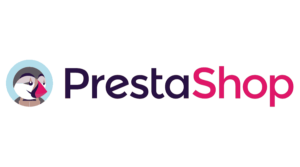We live in a digital age where people are looking to transfer their everyday activities into the digital world. The importance of a company’s website cannot be overstated. You may miss out on possibilities to reach your target market and grow your internet presence if you don’t have a business website.
The real challenge now lies in choosing the best open source eCommerce platforms to begin. Especially if you must strike a balance between cost and web quality.
When searching for the most refined open source eCommerce platform for your online store, there are several free and paid alternatives available. Unlike closed-source systems, which are more expensive and require regular updates, open source eCommerce platforms are pretty much free to use.
To separate the wheat from the chaff, we’ll review the top 10 platforms to build your online shops in our today’s article. It’ll go through their core features. But before digging into the details, let’s discuss the benefits of open source eCommerce platforms together.
Advantages of Open Source eCommerce Platforms
In the eCommerce industry, the most popular purpose for choosing open source software is to save deployment costs. While it is true that open source software is not always free, it is usually the case.
Another benefit could be the ease with which it can be customized. Because open-source platforms, unlike commercial software, do not place restrictions on how you should use or change the software, entrepreneurs are free to install them.
Let’s have a look at the best free open source eCommerce platforms and see which one best fits your budget and business needs.
#1 Magento

Magneto is a well-known free open source eCommerce platform that provides users with all of the necessary tools to start an online retail store.
Magneto users can use it to build and populate categories and landing pages. You can also, manage shipping and delivery of goods, and generate website and sales figures, among other things.
As part of their subscription edition, additional features are also accessible. Developers are often developing new plugins and extensions for users to use to improve their websites. Some of the more advanced plugins are fee-based, and it is up to the user to determine whether or not they want to pay for them.
Magneto Open Source platform enables customers to develop fully working websites for a variety of shops businesses. The most significant features are the ability to use multiple currencies and languages, as well as the ability to manage multiple stores and customizable modules.
#2 PrestaShop

The free, open-source eCommerce platform PrestaShop proves simple to use and can be customized to meet specific needs. It’s an easy-to-use application that’s built on PHP, so this will work with most websites.
If you have two separate websites, PrestaShop also provides multi-store management, allowing you to manage both from a single dashboard.
PrestaShop may also generate reports based on stock levels, sales, seller Statistics, sales prediction, and other parameters. Still, users are required to have a basic understanding of coding and know how to edit the source code in order to get the most out of PrestaShop.
#3 WooCommerce Open Source eCommerce Plugin

WooCommerce is the most commonly used open source eCommerce platform on the planet. You can install and use it on any web hosting service.
WooCommerce comes as a WordPress plugin rather than a full-fledged platform. Its community includes a large number of professional developers who can provide a wide variety of choices and customization options for your store website, and both of them are equally flexible with the wide range of ready solutions.
So if you can’t find the feature you need by default, chances are someone has already developed it and it’s available on the system marketplace. For instance, you have PDA Gold to protect WooCommerce digital products or PPWP to lock product pages.
And this enormous community can readily assist you in resolving your problems. WooCommerce allows you to upload and manage an unlimited number of products.
#4 Drupal Commerce

Drupal Commerce is among the list of top open source eCommerce platforms that aid in the optimization of your eCommerce site for search engines. It allows you to choose from a variety of mobile-responsive themes and modify the design, style, and logic to make your online store unique.
The platform may be adapted to fit the requirements and expectations of e-commerce websites of any size by integrating with third-party solutions. Customers may access your store from any device.
Drupal is also regarded as being extremely secure, so you can be assured that your personal information and data will be kept safe.
#5 Zen Cart

Zen Cart turns out to be one of the most popular open-source eCommerce platforms available. Zen Cart provides excellent security and documentation. You will become a member of Zen Cart’s large community.
It offers a wide range of language possibilities as well as significant customization. A multilingual website is usually beneficial when it comes to selling globally and establishing a brand.
Zen Cart has a number of attractive properties that you can utilize to expand up your eCommerce business, in addition to being incredibly user-friendly. It’s free, open-source, and doesn’t require any programming skills to get started. This is the platform for non-techy who don’t have any development degree and want to grow their online business.
#6 nopCommerce

nopCommerce is among the list of the top open source e-commerce platforms available. It is available for download for free just like other software and does not need any long-term investment.
Users can create and manage several eCommerce stores from a single admin panel. It is free to download and use to create an online store.
It has a large community of developers from all around the world who are always working to improve its performance and security. nopCommerce comes with a variety of features that will set your online business ahead of the competition.
#7 OpenCart
If we don’t include OpenCart in this list, we’re missing something huge. OpenCart has a large variety of plugins and themes that can help you improve the design and performance of your store.
OpenCart provides multi-currency, multi-language, eight shipping options, and twenty distinct payment gateways, among other capabilities. What’s more, it benefits from a strong community.
#8 OsCommerce
Using OsCommerce and you can create your own fully self-hosted website. For the best web store design, there are a variety of OsCommerce themes.
The best part about Oscommerce is that you have access to a fantastic community of developers, users, and forums where you can find a solution to any problem you may have with your website. The forum and community now have millions of active conversations and postings. You can also express your own opinions or seek answers to your questions.
Through its Apps Marketplace, OsCommerce integrates with a wide range of third parties. You can connect to Sage Pay and Facebook to show your site in numerous languages.
#9 Spree Commerce
Spree Commerce enables store owners to personalize their store and differentiate themselves from the competition. You can use Ruby on Rails to create this online retail platform. It appears to be highly modern, appealing, and distinct from other platforms with a strong developer community.
The platform also includes a number of pre-built extensions; removing the need for customers to depend on a third party to expand their set of features.
Spree Commerce has scalability and flexibility to provide. The architecture is modular, making it simple to learn, configure, and upgrade.
#10 Bagisto
In the race for the top open-source eCommerce platform, Bagisto isn’t far behind. This platform is powered by the PHP Larval Framework and has a wide range of basic and advanced features.
This platform is used by all startups and entrepreneurs to construct a multi-vendor marketplace. Users can take advantage of a variety of SEO features on this open source platform.
It would be an ideal location for any high-level projects. This platform would be ideal for new businesses. You can manage multi-channel inventories from a single website, connect your business to different inventory sources, and keep track of product supply in a given inventory with efficiency.
What’s Your Ideal Open Source eCommerce Solution?
There are about 500+ eCommerce platforms on the market today. Depending on their needs and budgets, store owners can launch their online business with open source platforms or hosted systems for your eCommerce business.
Keep in mind that selecting the right platform for your online business will benefit both your business and your customers.
Finally, it’s all about determining which software will perform best for you and your company. While employing open-source software for all of your IT needs isn’t ideal, the advantages of using one for your eCommerce platform are hard to ignore.
The 10 platforms listed above are incredibly beneficial to people. An open-source eCommerce platform is no longer just about saving money. They provide business flexibility, Auditability, Customizability which is a quality.
What’s the perfect solution for your e-commerce store? Share with us in the comment section below.
